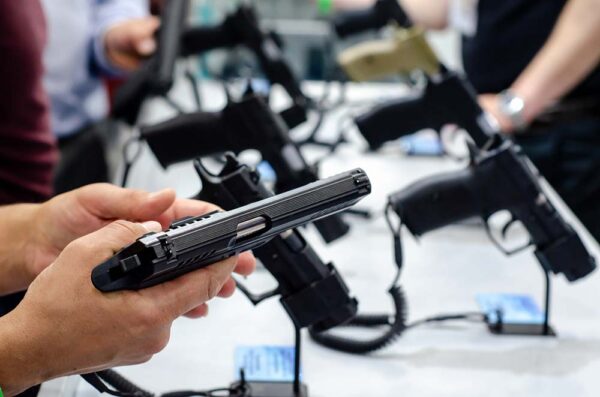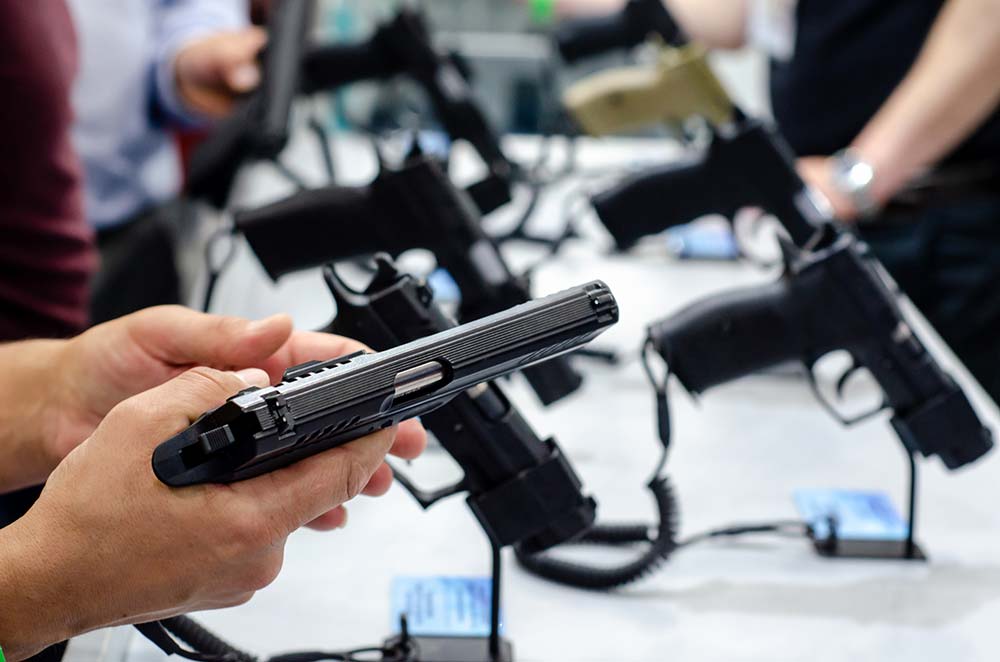
In a significant victory for gun rights advocates, a federal judge in Alabama has ruled that portions of the Bureau of Alcohol, Tobacco, Firearms and Explosives’ (ATF) 2024 Final Rule on firearm dealing exceed the agency’s statutory authority. The decision, handed down just two days ago, could reshape how hobbyists and collectors navigate federal regulations on buying and selling guns, potentially easing fears of unlicensed prosecution for casual transactions.
The case, Butler v. Bondi, was decided by U.S. District Judge Corey L. Maze in the Northern District of Alabama’s Eastern Division on September 30, 2025. Plaintiffs—including individual gun enthusiasts Don Butler and David Glidewell, along with the National Rifle Association (NRA)—challenged the rule’s broad interpretation of what it means to be “engaged in the business” of dealing firearms under the Gun Control Act (GCA).
The ATF’s Final Rule, effective April 19, 2024, aimed to clarify and expand the definition of unlicensed firearm dealing. According to then-President Joe Biden, the change was over rising concerns over gun trafficking, although many saw those reasons as just an excuse. The ATF stated that their reasoning was rooted in the GCA and amendments such as the Firearms Owners’ Protection Act (FOPA) of 1986 and John Cornyn’s Bipartisan Safer Communities Act of 2022 (BSCA). The rule sought to require federal licenses for anyone “engaged in the business” of selling guns, even if not for primary profit.
Critics, including the plaintiffs, argued the rule criminalized innocent activities. Butler and Glidewell, for instance, described themselves as hobbyists who occasionally buy, sell, or trade firearms to build personal collections. The men feared a single sale could land them in legal jeopardy for selling a gun without a license. The NRA joined to defend its members’ rights. Defendants included Florida Attorney General Pamela Bondi and ATF Director Daniel Driscoll.
The suit, filed in July 2024, raised multiple claims: statutory overreach (Count 1), arbitrary and capricious rule-making (Count 2), vagueness in violation of the Fifth Amendment (Count 3), Second Amendment violations (Count 4), and separation of powers issues (Count 5). Cross-motions for summary judgment followed, unfolding against the backdrop of the 2024 presidential election. Following Donald Trump’s inauguration, a review of the rule began, but it remained in force.
Judge Maze granted summary judgment to the plaintiffs on Count 1, declaring several provisions of the Final Rule unlawful under the Administrative Procedure Act (APA) for exceeding the ATF’s authority. He denied the defendants’ motion on that count and deferred the remaining claims without prejudice, invoking the constitutional avoidance doctrine to sidestep thornier Second and Fifth Amendment questions for now.
Central to the decision was the rule’s elimination of a minimum transaction threshold for licensing. Maze emphasized that Congress intended “engaged in the business” to mean a “regular course of trade or business” involving “repetitive purchase and resale,” not isolated sales. “Regular means repeated or often. So regular business requires more than one firearm transaction involving a single firearm,” the judge wrote, drawing on statutory text analysis from Garland v. Cargill.
The court also struck down the rule’s redefinition of “predominantly earn a profit,” which dispensed with the need to prove actual profit motives for non-criminal dealers. Maze applied the negative implication canon, noting that Congress’s carveout for criminal or terrorism-related dealings implied that proof of profit is essential otherwise. “By not requiring proof of profit for those who deal firearms for criminal purposes or terrorism, Congress implied that proof of profit is required for everyone else,” he reasoned.
Further, the judge invalidated the exclusion of “personal protection” firearms from the safe harbor for personal collections, arguing it contradicted congressional intent to shield hobbyists. “If Congress meant not to burden the collection of guns for personal protection, then ATF’s interpretation…makes little sense,” Maze stated, referencing NRA v. Brady.
Rebuttable presumptions, such as those triggering licensing for a single sale if paired with resale intent or informal promotion, likewise fell, as they amplified the rule’s overreach. On standing, Maze confirmed the plaintiffs’ credible threat of enforcement, given the rule’s breadth, and extended associational standing to the NRA.
While celebrating the statutory win, the court declined to address the constitutional counts. Citing precedents like Ashwander v. TVA, and Spector Motor Serv., Inc. v. McLaughlin, Maze applied constitutional avoidance: “The Court will not pass upon a constitutional question although properly presented by the record, if there is also present some other ground upon which the case may be disposed of.” He noted that the existing statutory injunction already provides meaningful relief, though plaintiffs seek broader declaratory judgments.
A separate order will permanently enjoin enforcement of the invalidated provisions against the plaintiffs. Maze scheduled a status conference for October 14, 2025, to chart the path forward on the deferred counts.
This ruling arrives at a pivotal moment, with the incoming Trump administration signaling a regulatory rollback. Parallel litigation in other districts could lead to circuit splits, potentially hastening Supreme Court review. For everyday gun owners, the decision offers immediate reassurance. Casual sales within personal collections appear safe from federal licensing mandates, at least in this jurisdiction.
DOJ Sues LA Sheriff Over Gun Permit Delays, Says 2A Violation Scope ‘Staggering’
About John Crump
Mr. Crump is an NRA instructor and a constitutional activist. John has written about firearms, interviewed people from all walks of life, and on the Constitution. John lives in Northern Virginia with his wife and sons, follow him on X at @crumpyss, or at www.crumpy.com.







Now let me see if I’ve got this right. If I sell a personal firearm at a profit, I may be unlawfully engaging in business, but if I sell it at a loss, I may be classified as a criminal or a terrorist. If it’s the latter, does that mean I’m free to go? 🙂
We the commenters on AmmoLand was just discussing why Trump’s DOJ wasn’t doing anything to curb the ATF “rule” on this. Now we know…
ATF should be shut down or at a minimum have all firearm rules and regulations set by them rescinded and remove their power to set ANY Rules or Regulations regarding firearms.
we need a judge to rule atf unconstitutional ,alcohol tax collectors tobacco tax collectors ok ….I call bullshit on gun registration and attacks on owners ……machine guns are required to defend yourself and neighbors from tyrants ,and over zealous goobers